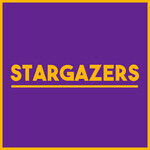Why do we tell kids to "pipe down"? Why do we say food is "piping hot"? Why do we call fantasies "pipe dreams"?
Discovering the origins of these "pipe" terms takes us on a quirky voyage from oceans to ovens to opium ...
—Pipe Down: On old sailing ships, the "boatswain" (or "bosun") used a small, whistle-like pipe to communicate orders to sailors. Each series of musical notes conveyed a different command.
When he blew a sequence of tones ordering the sailors to leave their duties and return to their quarters below deck, he was said to "pipe down" the men. Once the men went below, the deck was much quieter, so "pipe down" came to mean "quiet down."
The term floated into landlubber speech during the late 1800s, providing parents, teachers and coaches with a crisp, clear — and maddeningly ineffective — command to vociferous kids.
—Piping hot: As a child, I was always a little bit frightened when my mom said food was "piping hot." Would it burn my tongue like a hot water pipe? Instead, I should have been thinking of a flute or piccolo.
Linguists agree that "piping hot" refers to the sound of air emitted from a pipe, but propose two different theories about its origin:
Theory No. 1: Some cooks insert pie whistles, a.k.a. "pie funnels," "pie chimneys" and "pie birds," into pies before baking to vent steam and prevent the filling from boiling over. So when escaping steam whistles through this miniature "pipe," the pie is said to be "piping hot."
Theory No. 2: When foods such as oatmeal or spaghetti sauce are heated, they boil and bubble, producing whistling sounds like a musical pipe.
Whichever theory is correct, the phrase is remarkably old. Geoffrey Chaucer used it in "The Miller's Tale" during the late 1300s: "And waffles piping hot out of the fire." I'm getting hungry.
—Pipe Dream: During the 1800s, smoking opium through pipes became popular among the British upper classes and literati. People who inhaled opium often experienced hallucinogenic, fantastical visions, as in Samuel Taylor Coleridge's opium-inspired poem "Kubla Khan."
By the 1890s, "pipe dream" had become a general term for any impractical or unrealistic idea. In 1890, for instance, The Chicago Daily Tribune referred to human flight as a "pipe-dream."
Another version of "pipe dream" survives in the journalists' expression "to pipe a quote," meaning to "make it up." And, no, I didn't pipe that Tribune quote.
Rob Kyff, a teacher and writer in West Hartford, Conn., invites your language sightings. Send your reports of misuse and abuse, as well as examples of good writing, via e-mail to [email protected] or by regular mail to Rob Kyff, Creators Syndicate, 737 3rd Street, Hermosa Beach, CA 90254.






View Comments